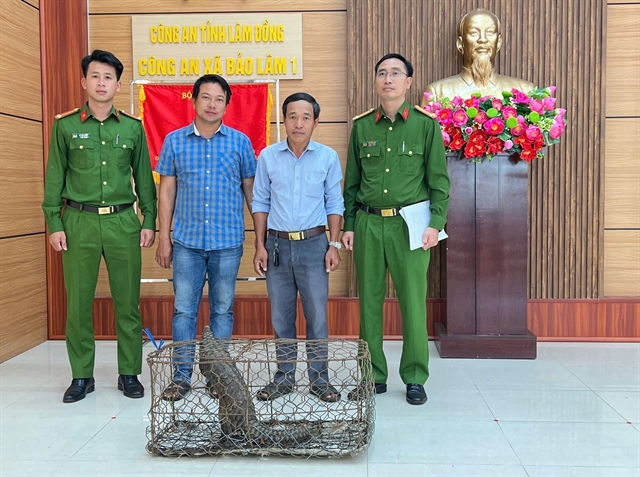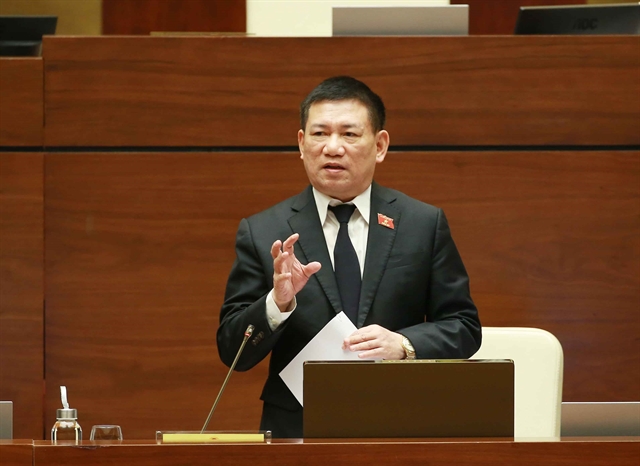 Politics & Law
Politics & Law


|
| Auditor General Hồ Đức Phớc presented the report on the amended law on State Audit to the National Assembly on Friday in Hà Nội. — VNA/VNS Photo |
HÀ NỘI — Auditor General Hồ Đức Phớc told National Assembly (NA) deputies “not to worry not too much” about data leaks when information from audited organisations and individuals becomes readily accessible by the State Audit of Việt Nam.
The leader of the State Audit Office of Việt Nam made the remark to the NA during the legislation’s ongoing 8th session in Hà Nội on Friday as he presented a report on the draft amended Law on State audit, which includes a controversial item that aims to aid auditing agencies but has also sparked data protection concerns.
In the age of Industry 4.0 when businesses and agencies have started to implement electronic payments, the State Audit needs to expand the scope of data it accesses instead of relying on physical copies of invoices, bills and other documents, said Phớc.
Also according to the State Audit, the amendment also falls in line with the recommendations from the International Organisations of Supreme Audit Institutions (INTOSAI) and international practices.
Working on electronic records can also help save time and increase accuracy in the auditing process, he added.
Obtaining data will not only help in the auditing of individual cases but will also enrich the State Audit’s own databases, to allow the agency to make forecasts on possible risks to public finance and investment and the macroeconomy.
Nguyễn Đức Hải, chair of NA Finance and Budget Committee, tasked with assessing the amended draft law, said within the national information databases or the database of audited organisations’ and individuals contain many kinds of information – including State secrets and personal information – so there must be a clear scheme to determine those who can access what and to what degree and this activity must be monitored.
Phớc said access to electronic records – as well as which types of data would be audited and the duration data can be accessed by the State Audit – would only be granted with the consent from the audited organisations and individuals.
Similarly, auditors given the right to access and analyse data would be responsible for any breach, the Auditor General said.
Some deputies said they wanted the State Audit to have access to whatever records and data they need, regardless of the opinion of the audited organisations and individuals.
Right to complain
Deputies also expressed support for a new stipulation which allows audited organisations to file complaints against State Audit’s official results, with the Auditor General being the 'resolver' of complaints and recommendations.
“The current law gives the State Audit an 'overriding power' meaning their judgement takes effect as soon as it is issued, no questions asked. But, what if the audited organisation wants to protest or question the judgement, then where can they take their complaints to?” said deputy Lê Thanh Vân from Cà Mau Province’s delegation and a member of the NA’s Finance and Budget Committee.
“Therefore, an amendment is needed to protect the legitimate rights and benefits of the legal bodies that are subjected to auditing by the State Audit,” Vân said, adding that this is in line with the law on complaints and denunciation and the law on criminal procedures code. — VNS




